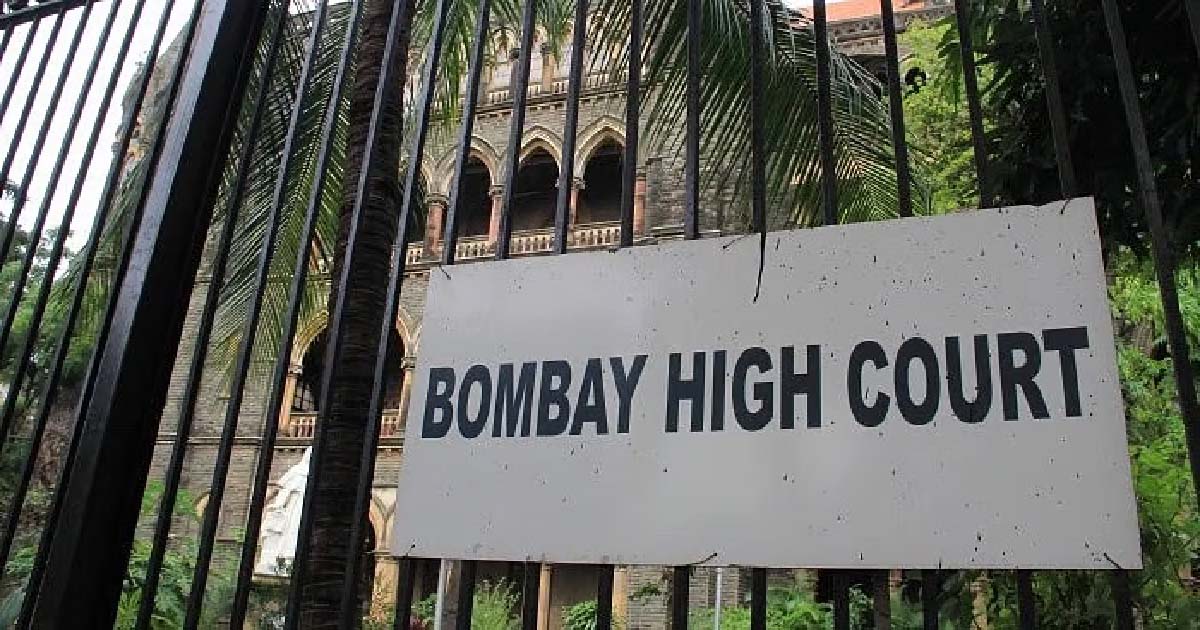Business
Mercedes-Benz Expands Electric Portfolio in India: G580 with EQ Technology and EQS SUV 450

Mercedes-Benz has once again reaffirmed its dedication to electric mobility with the launch of two exclusive Battery Electric Vehicles (BEVs) in India: the G580 with EQ technology and the EQS SUV 450. These new additions further expand the company’s electric portfolio, offering luxury and sustainability options tailored to diverse customer needs.
Mercedes-Benz G580 with EQ technology Edition One is priced starting at INR 3 crore (all-India ex-showroom), offering a premium electric off-road experience. Meanwhile, the EQS SUV 450, a luxury electric SUV, is available at an introductory price of INR 1.28 crore (all-India ex-showroom), making it an accessible option in the high-end electric vehicle market.
Mercedes-Benz G580 with EQ technology
The Mercedes-Benz G580 with EQ technology will be launched exclusively in India as the Edition One, featuring a range of high-end specifications designed for both performance and luxury. Powered by four individually controlled electric motors, the vehicle delivers a combined output of 587 hp and 1,164 Nm of torque, allowing it to accelerate from 0 to 100 km/h in just 4.7 seconds.
The Edition One comes equipped with advanced features like the Burmester 3D surround sound system, MBUX NTG-7 with wireless Apple CarPlay and Android Auto, and Augmented Reality navigation. Its off-road capabilities are enhanced with technology such as G-TURN for tight maneuvers, G-STEERING for reduced turning radius, and intelligent off-road crawl functions.
Mercedes-Benz EQS SUV 450 4MATIC, locally manufactured at the brand’s state-of-the-art plant in Chakan, Pune, offers a luxurious and spacious 5-seat configuration designed for maximum comfort. Powered by two electric motors generating 360 hp and 800 Nm of torque, the SUV can accelerate from 0 to 100 km/h in just 6.1 seconds.
Mercedes-Benz EQS SUV 450 4MATIC
Mercedes-Benz EQS SUV 450 4MATIC, locally manufactured at the brand’s state-of-the-art plant in Chakan, Pune, offers a luxurious and spacious 5-seat configuration designed for maximum comfort. Powered by two electric motors generating 360 hp and 800 Nm of torque, the SUV can accelerate from 0 to 100 km/h in just 6.1 seconds.
The EQS SUV 450 is a full-size vehicle with a 3.2-meter wheelbase, providing ample space for rear passengers. It features a striking Electric Art Line exterior, 21-inch light-alloy wheels, and advanced technology such as the MBUX Hyperscreen with a 17.7-inch OLED central display.
Additionally, the EQS SUV 450 includes the Burmester 3D surround sound system and ENERGIZING AIR CONTROL Plus with a HEPA filter for enhanced air quality. Bookings for the EQS SUV 450 are now open, with deliveries expected to begin in February 2025, while the EQS SUV 580 has already sold out until April 2025.
Business
Nescafé Premix Qualifies As ‘Instant Coffee’, Attracts Lower 8 Per Cent Sales Tax: Bombay HC

Mumbai: In a significant ruling on product classification under the Bombay Sales Tax Act, 1959, the Bombay High Court has held that Nescafé Premix must be taxed at 8% as “coffee / instant coffee,” and not at the higher rate of 16% applicable to general beverage powders.
A bench of Justices M. S. Sonak and Advait Sethna reiterated the cardinal principle that specific tax entries must prevail over general ones. Applying the common parlance test, the court concluded that Nescafé Premix, as marketed and consumed, had created a clear perception of “instant coffee”.
The case arose from a dispute between Nestlé India Ltd. and the Sales Tax Department regarding whether Nescafé Premix — containing 8.5% soluble coffee powder, 54% sucrose, 37% partially skimmed milk powder and 0.5% maltodextrin — should be classified under Schedule Entry C-II-3 (8%) or Entry C-II-18(2) (16%).
The Commissioner of Sales Tax had earlier ruled in 1998 that the product fell under the higher-taxed general entry for powders used in non-alcoholic beverages, emphasising that the coffee content was “minuscule 8.5%”.
The Maharashtra Sales Tax Tribunal reversed this decision in 2001, holding that ingredient percentage was not decisive — relying on Supreme Court precedent that even small quantities, like salt in food, do not alter the essential character of the final product.
Upholding the Tribunal’s order, the HC stressed that the product’s actual use and consumer understanding were crucial. “Ultimately, in all such matters, we must go by the common parlance test,” the bench said.
It noted that the premix was expressly marketed as Nescafé Premix and used to dispense Nescafé from vending machines simply by adding hot water. “The resultant product, in common parlance, was nothing but Nescafé,” the Court observed.
Rejecting the Department’s argument that low coffee content disqualified it from being considered instant coffee, the Court agreed with the Tribunal that removing coffee powder altogether would fundamentally change the product’s identity — demonstrating that the coffee component, though proportionally small, was determinative of classification.
The bench also emphasised that Entry C-II-3, covering “coffee” and “instant coffee”, was a specific entry and therefore prevailed over the general entry for beverage powders under C-II-18(2). “The concept of instant coffee must conform to modern development and modern perceptions,” the Court added.
Business
Indian stock market ends in bullish tone after RBI rate cut

Mumbai, Dec 6: Indian equity benchmarks made marginal losses after hitting record highs and three weeks of consecutive gains due to profit booking. However, the market ended the week in a bullish tone after the Reserve Bank of India (RBI) delivered a 25 bps rate cut that lifted investor sentiment.
Benchmark indices Nifty and Sensex dipped 0.37 and 0.27 per cent during the week to close at 26,186 and 85,712, respectively.
Early optimism driven by strong Q2 GDP print and robust auto sales was overshadowed by persistent FII outflows, sharp rupee depreciation, and uncertainty over trade negotiations.
Broader indices underperformed, with the Nifty Midcap100 and Smallcap100 down 0.73 per cent and 1.80 per cent, respectively in a week.
Sentiment reversed on Friday after the RBI surprised markets with a 25-bps rate cut, supported by lower inflation forecasts and liquidity measures.
Gains during the week were led by auto, IT due to festive demand and favourable currency tailwinds. Banks, Finances, consumer durables, power, chemicals and oil & gas lagged.
As long as Nifty sustains above the 26,050–26,000 band, the bullish structure remains valid. Immediate resistance now lies at 26,350–26,500 zone and a break below 26,000 could lead to profit booking, said market experts.
With India’s economic growth remaining resilient despite tariff pressures and global headwinds, the Indian equity market is well-positioned to benefit if global fund flows begin to rotate back into emerging markets, market watchers said.
Investors are keen on cues from the US Federal Reserve’s monetary policy decision next week. Markets have already begun pricing in a 25 bps rate cut, supported by dovish commentary from several Fed officials and recent data pointing to softening labour market conditions.
Analysts said that shift in US Fed’s policy stance could sway currency movements and materially influence foreign portfolio investor flows into emerging markets including India.
Business
IndiGo Crisis: 75-Yr-Old Woman Waits Hours For Luggage Without Medicines At Mumbai T2 Airport

Mumbai, Dec 05: When IndiGo’s nationwide operational meltdown began disrupting flights earlier this week, thousands of passengers were caught in chaos across the country. Among them was a 75-year-old woman whose ordeal at Mumbai’s Terminal 2 gained attention after her daughter shared a distressed post on X. Thankfully, the woman has now reached home safely, but her experience reflects the scale of frustration travellers are facing.
In her post on X, Punita Toraskar wrote that her elderly mother had been waiting at T2 since noon, and even by 4:42 pm, she still hadn’t received her luggage. The situation was more alarming because the 75-year-old needed to take her medicines but was stuck waiting on an empty stomach, stranded amid the airport chaos.
Toraskar’s post quickly resonated with passengers across India who have been struggling with severe delays, cancellations, and a complete breakdown of communication from India’s largest airline.
IndiGo is currently grappling with one of the biggest operational crises in its history. Nearly 900 flights have been cancelled since Tuesday, triggered by a mix of staff shortages and the airline’s struggle to adapt to stringent new crew duty regulations.
Passengers at major airports — Delhi, Hyderabad, Bengaluru, and Kolkata — are facing hours-long queues, mounting delays, and skyrocketing airfares as alternative flight options shrink. Hotels are filling up, tempers are rising, and social media is flooded with frustration.
IndiGo has issued public apologies and claims it is rebooting its systems and schedules to stabilise operations. But for many travellers like Toraskar’s mother, the damage is already done.
Despite the turmoil, Punita confirmed later that her mother had finally reached home safely, a small relief in a week of aviation chaos.
-

 Crime3 years ago
Crime3 years agoClass 10 student jumps to death in Jaipur
-

 Maharashtra1 year ago
Maharashtra1 year agoMumbai Local Train Update: Central Railway’s New Timetable Comes Into Effect; Check Full List Of Revised Timings & Stations
-

 Maharashtra1 year ago
Maharashtra1 year agoMumbai To Go Toll-Free Tonight! Maharashtra Govt Announces Complete Toll Waiver For Light Motor Vehicles At All 5 Entry Points Of City
-

 Maharashtra1 year ago
Maharashtra1 year agoFalse photo of Imtiaz Jaleel’s rally, exposing the fooling conspiracy
-

 National News1 year ago
National News1 year agoMinistry of Railways rolls out Special Drive 4.0 with focus on digitisation, cleanliness, inclusiveness and grievance redressal
-

 Maharashtra1 year ago
Maharashtra1 year agoMaharashtra Elections 2024: Mumbai Metro & BEST Services Extended Till Midnight On Voting Day
-

 National News1 year ago
National News1 year agoJ&K: 4 Jawans Killed, 28 Injured After Bus Carrying BSF Personnel For Poll Duty Falls Into Gorge In Budgam; Terrifying Visuals Surface
-

 Crime1 year ago
Crime1 year agoBaba Siddique Murder: Mumbai Police Unable To Get Lawrence Bishnoi Custody Due To Home Ministry Order, Says Report












